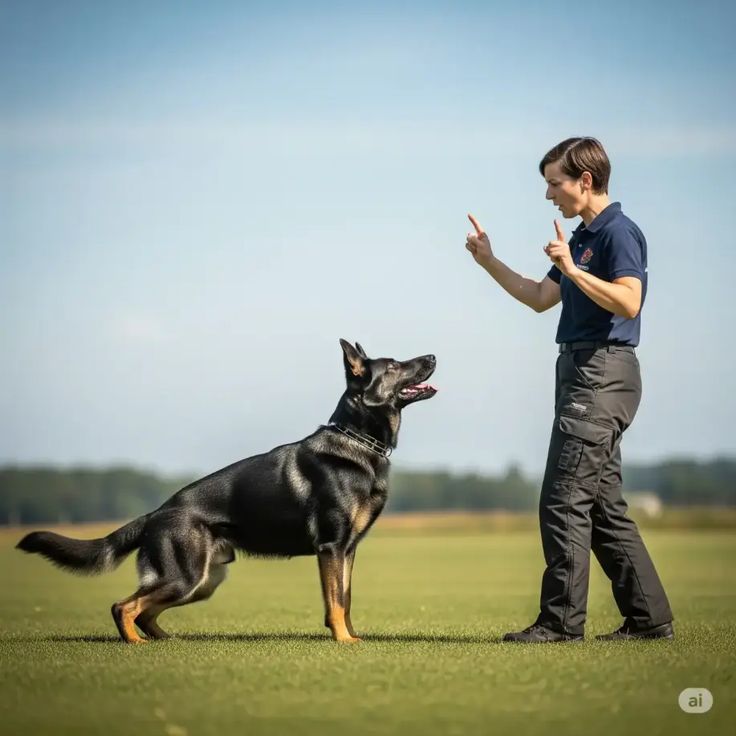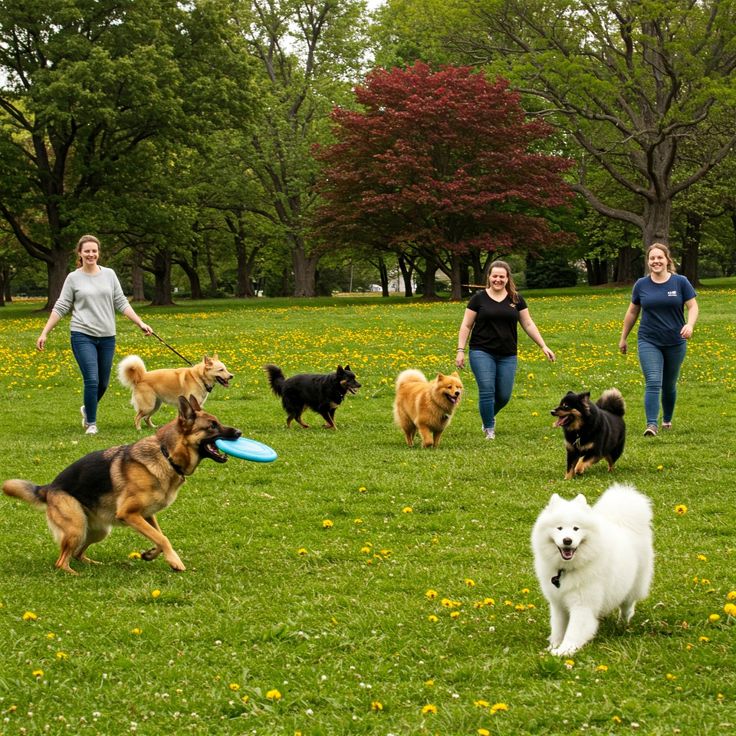Service dogs are astonishing animals, and they have been trained to serve individuals with disabilities. They may be involved in mentoring the blind individuals to warning the deaf individuals or even offer emotional comfort to persons having mental health issues. But have you ever thought of how these marvellous creatures get so perfect in their employment? The solution can be found in young puppy training.
Raising a service dog is not only about obedience, but also about establishing a good base in their early developing months. It is a key stage of determining all that will come after, and early education is the prerequisite to success. In this blog post, we are going to discuss how it is not the end but the beginning that counts when it comes to making good and serviceable service dogs.
The Importance of Early Education for Service Dogs
Service dogs require early education to ensure they succeed in their important roles. Effective guide dog puppy training lays the foundation for their future as reliable companions for people with disabilities.
These dogs will undertake certain missions that will help people with disabilities. Educating them on the fundamentals at a young age will make them know what is expected and what is required of them.
In addition to this, good behavior patterns are formed during the period of puppyhood when they are being trained. Puppies are generally inquisitive and this is the best moment to instill appropriate socially acceptable behavior.
Bad habits can be easily developed in the absence of proper guidance at a young age. When minor problems are dealt with they reduce the major problems in the future.
Also, the early education helps to create a connection between the dog and its owner. This relationship improves trust and understanding since they collaborate in different settings.
Time spent in early education will be worth a lot when these pups become loyal service animals who are willing to assist people in need.

The Role of Puppy Socialization in Training Service Dogs
Service dog training is based on puppy socialization. Being exposed to various environments, human beings and other animals at a tender age assists in shaping their behaviour and confidence.
At the critical early months, puppies are sponges. They absorb all that is surrounding them. This stage is crucial towards making an adjustable adult dog that is able to cope in a number of situations without panic.
Socialization is what explains to the puppies how to behave in a social environment- busy street, overcrowded shops or even loud noises. Such experiences make them less anxious in the future when they are faced with real-life difficulties as service animals.
Their comfort zone is also expanded by meeting different people. The interactions that they have become more diverse will prevent the fearfulness or aggression in the future.
Training is not about commands only, but it is also about establishing trust between the puppy and the handler. An emotionally intelligent dog is able to respond to the human feelings instinctively and thus they are invaluable companions.
Understanding the Critical Period for Learning in Puppies
At some time, the period of learning among puppies is known to be a critical period, which is between three and twelve weeks. Their brains are like sponges during this period and are therefore absorbing the experiences and knowledge at an amazing pace.
It is the most important period of socialization during the early weeks. Introducing puppies to new spaces, new people and new situations makes them gain confidence. This exposure may influence their future behavior radically.
The negative experiences or fear at this age may result in permanent problems in the future. An adult service dog will either develop anxiety or aggression as a result of being a frightened puppy.
The miracle of positive reinforcement training methods performs miracles at present. Puppies react positively to rewards and encouragement, and not punishment. It is now that trust is built, which will lead to a good bond in the future.
Knowing this delicate period, trainers and owners can help their puppies to grow to be well adjusted service dogs, who can face any form of difficulty they may encounter in their adult life.
Key Skills and Behaviors to Focus on During Early Puppy Education
In the case of education of service dogs at a young age, it is essential to pay attention to such important skills and behaviors. Puppies should also be taught to treat other people and animals in the right way. Simple obedience exercises like sit, stay, come and down are the basis against which more difficult tasks are built.
This process is associated with socialization. It is advisable to expose the puppies to various environmental conditions so that they grow into mature life. Good experience related to the different sights, sounds, and smells instills confidence in them.
Furthermore, it is possible to teach impulse control, which will help avoid the undesired behaviors in the future. Waiting games or waiting to get a treat or toy games promote waiting and concentration. The skills are necessary when the dog needs to carry out certain tasks at a stressful situation.
Also, service dogs are supposed to be adaptable in a variety of circumstances. Exposure to crowded social environments can also be introduced during training sessions so that they learn to deal with distractions without losing track.
By laying these underlying points in their early development, service dogs are already guaranteed of success in their work and an excellent relationship between the dog and the handler. The time spent on this stage is invaluable since they develop into reliable friends who can help those who are in need.
















